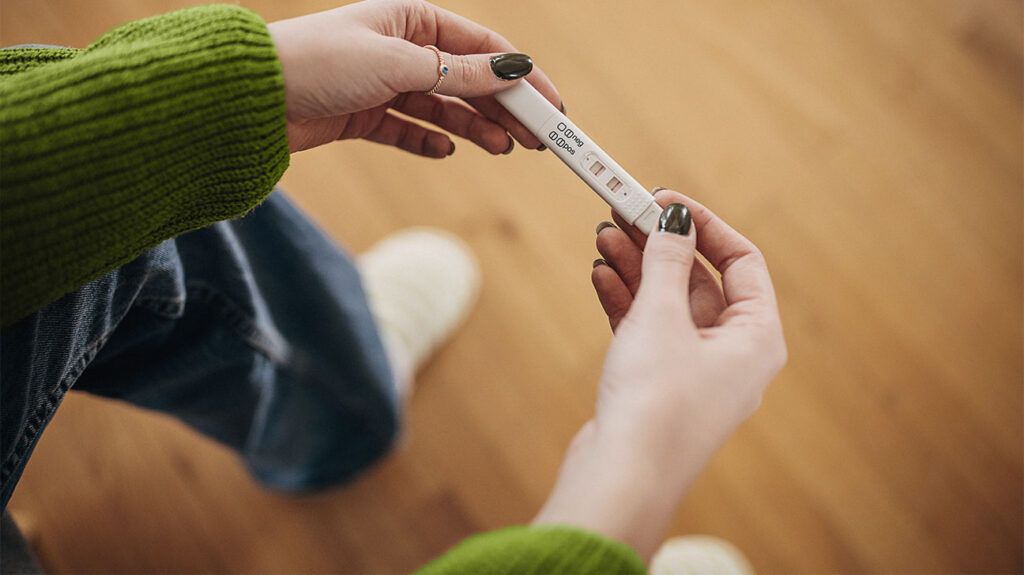A medical abortion is the process of ending a pregnancy using medication. This can cost up to $800 but may vary depending on the health center, what state a person lives in, and whether they have health insurance.
In some states, a person may not be able to access medical abortion pills in a medical setting. Instead, they may be able to obtain abortion pills via a telehealth or mail-order service.
Read on to learn more about medical abortion, how much it costs, financial support available, and additional resources.
Content warning
This article includes content that some readers may find upsetting. Please read at your own discretion.

At Planned Parenthood, a nonprofit organization that offers reproduction and sexual health services, a medical abortion can cost up to $800. However, it claims it is often less than this amount, with the average cost around $580.
Many factors can affect the cost of a person’s medical abortion, including:
- how far along in their pregnancy they are
- the state or health center where they get care
- whether they need to travel, take time off work, or arrange child care
- whether they qualify for financial assistance
- whether they can use health insurance
Indeed, some private health insurance companies may cover some or all of the cost of a medical abortion. If a person requires a medical abortion, they can contact their insurer and ask whether this procedure is covered.
Meanwhile, Federal Medicaid funding only pays for abortions when the pregnancy is a result of rape or incest or a threat to the pregnant person’s life.
According to the Abortion Facility Database Project, the median out-of-pocket or “self-pay” cost for the abortion pill increased from $495 in 2017 to $1,000 in 2023.
If a person does not have health insurance coverage, Aid Access is a low cost option. This service ships abortion medication to all 50 states in the United States for $150.
While it is rare, it is important to consider that some people may experience an incomplete abortion. This is when pregnancy tissue is not entirely removed following a medical abortion, meaning a person may require more medication or a follow-up procedure. This may incur additional costs.
If a person requires financial support to access a medical abortion, there are a few options available to them.
- Abortion Freedom Fund (AFF): This is a national abortion fund that helps pay for abortion pills by mail. It funds a maximum of $200 per person per abortion.
- Planned Parenthood: A person may be able to receive financial assistance for a medical abortion or related costs, such as transportation to an appointment.
- National Network of Abortion Funds (NNAF): This is a network of almost 100 independent abortion funds. While abortion funds will do everything they can to support a person, they don’t usually have the money to cover the entire cost of an abortion.
- National Abortion Federation (NAF): The NAF has a free hotline (1-800-772-9100) that provides unbiased information about abortion, referrals to abortion providers, and financial assistance. It offers services to everyone, regardless of their individual situation.
- The Brigid Alliance: This organization arranges travel, food, lodging, child care, and other logistical support for people seeking abortions. However, it generally prioritizes clients who are over 15 weeks pregnant. At this point of pregnancy, most health centers will not offer a medical abortion.
A medical abortion is a procedure that terminates a pregnancy using medication. It is also known as a medication abortion or an abortion with pills and is generally available in the earlier stages of pregnancy.
Typically, a medical abortion involves taking a drug called Mifepristone in a medical setting, followed by Misoprostol at home.
Mifepristone works by blocking the hormone required for the pregnancy to continue, while Misoprostol induces contractions to expel the pregnancy tissue. In some instances, doctors will prescribe both medications to take entirely at home, or a person may only need to take Misoprostol on its own.
Depending on which state a person lives in, they may not be able to access medical abortion pills in a medical setting. If this is the case, they may be able to obtain abortion pills online through a telehealth or mail-order service. This is known as a self-managed or at-home abortion.
Learn more about the different types of abortion.
The Dobbs decision
On June 24, 2022, the Supreme Court of the United States overturned Roe v. Wade, the landmark 1973 ruling that secured a person’s constitutional right to an abortion.
This means that individual states are now able to decide their own abortion laws. As a result, many states will ban or severely restrict abortion access.
The information in this article was accurate and up to date at the time of publication, but the facts may have changed since. Anyone looking to learn more about their legal rights can message the Repro Legal Helpline via a secure online form or call 844-868-2812.
A person may experience the following side effects following a medical abortion:
- cramping
- bleeding
- tender breasts that leak a milky discharge
- tiredness
- nausea
- feelings of sadness or regret
If a person is considering a medical abortion, the following resources may be helpful:
- Abortion Finder: This online tool helps people learn more about abortion laws in their state.
- Exhale: This organization offers free post-abortion emotional support via text and telephone.
- Repro Legal Helpline: This is a free legal advice and support service regarding abortion.
The following groups can also offer nonjudgmental support for the emotional aspects of having an abortion:
- All-Options: This group offers phone and text support and connects people to resources for finding and recovering from abortion.
- Connect & Breathe: This nonprofit organization offers post-abortion support via telephone.
- Ending a Wanted Pregnancy: This group offers information and support for people who terminate wanted pregnancies.
- Faith Aloud: This faith-based organization offers pro-choice resources and support for people who have abortions.
Learn about how people can care for themselves after an abortion.
A medical abortion can cost up to $800 but varies depending on the health center, what state a person lives in, and whether they have health insurance.
If a person does not have health insurance, Aid Access is a low cost option that mails the abortion pill to people for $150.
Alternatively, financial assistance programs are available, including the Abortion Freedom Fund and the National Network of Abortion Funds.


